Charles Lees, a professor of politics at the University of Bath:
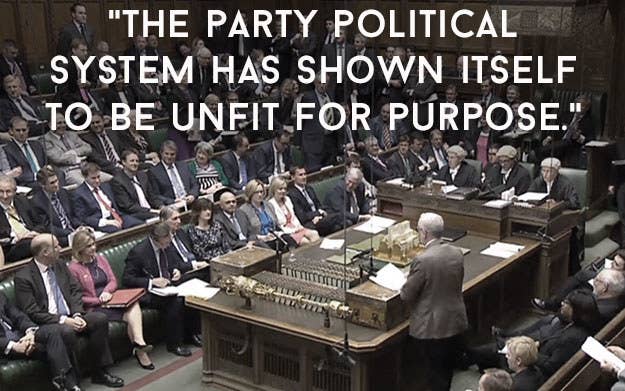
"The vote was a mixture of long-standing, rational grievances about the EU, plus people feeling disconnected and angry with the political class. That sort of disconnection is common in Europe and the US, but in the UK, with [first-past-the-post], there’s not an easy away for voters to express their anger. So it’s evidence that there’s something very wrong in the UK.
"It’s been manifesting itself since the 1970s, but becoming more of a problem as the party system shows itself to be unfit for purpose. All the main parties have this echo chamber of SpAds [special political advisers] and special advisers who start off at Oxbridge and then work in the party and find a safe seat, and now they find it very hard to communicate a message to ordinary voters. What will shock the Remain camp was how much this was coming down the tracks at them in a way that they couldn’t address.
"At some point the electoral system will have to change. Some sort of radical devolution for England is necessary – government from the centre isn’t working, especially for people in the North East and far South West. And in doing that you mix up the political class, you get a more diverse background to the political class.
"Immigration was really important to people in these communities. It’s whether you can break down the coalition of people who are are explicitly racist, and the people who have real concerns over services, and the people, especially in the north who put a lot of importance on a sense of place. Governments could do a lot more to talk in a grown-up fashion about immigration, why it’s impossible to turn off the tap, and do it without just branding these people as racists."
Victoria Honeyman, a lecturer in British politics at the University of Leeds:
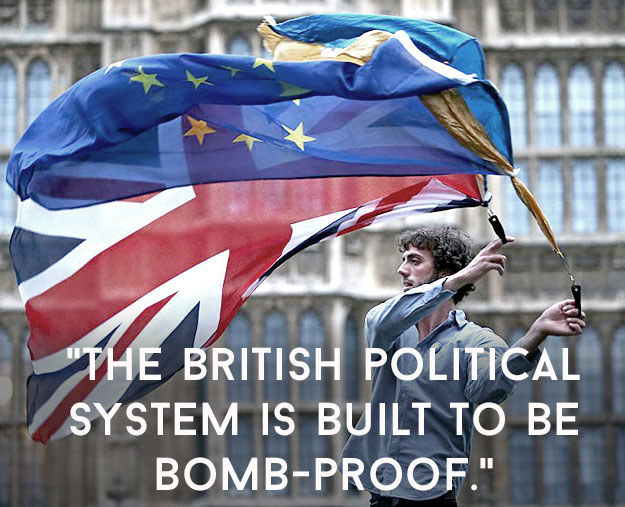
"This has long roots. British society has always been riven by class division, but since the Thatcher era a feeling has got stronger that the political parties are not engaging with people who aren't middle class, who don’t live inside the M25. Those people used to think the Labour party was listening to them, but [Neil] Kinnock, [John] Smith and [Tony] Blair created a party which was more electorally successful, but not in touch with the constituency. They could forgive that while they won elections, but not any more.
"The 2008 financial crash didn’t help. If you were close to the poverty line and suddenly everything gets more expensive and your wages stagnate, that will create more dissatisfaction. But it’s not all of it. People have a genuine grievance with the party system, which erodes and minimises people's voices.
"The British political system is built to be bomb-proof. It's one of the major advantages of FPTP – it stops small parties from bubbling up, it’s all about slow and steady. I wouldn’t bet on a revolution.
"But the parties will look different. The Tories will have to listen to the working-class people who voted for Thatcher, not just to the middle class. And Labour have to find a way through this. And I fear that they’ll end up in an extended period of navel-gazing and internal battles, like the 1980s, because I don’t see how any individual can stick the party back together again."
Paul Cairney, professor of politics at the University of Stirling:
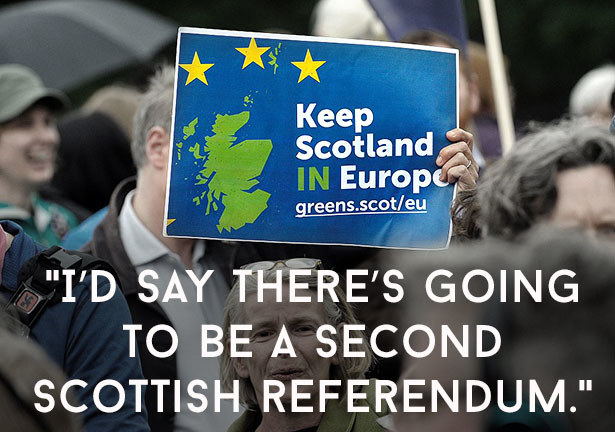
"In the short term, it's all gut feelings but I’d say there’s going to be a second Scottish referendum. I don’t think it’s inevitable that the main parties will split up, if only because, however bad things are for, say, the Conservatives, they’re in government, and the chances are they’ll win the next election.
"Labour are a bit different. They’re doing so crap at the moment you might think 'why not split up and do something different', but even then the resignations seem to be not 'let’s start a new party', but 'let's save what we have'.
"But in the longer term we’ll go back to the main reasons parties win elections, which is that they have popular leaders and coherent plans for the future. That’s why the SNP wins, that’s why the Conservatives win. Once we don’t pay as much attention to the constitutional stuff that’s what’ll happen."
Marie Hicks, a professor of British and European history at the Illinois Institute of Technology:
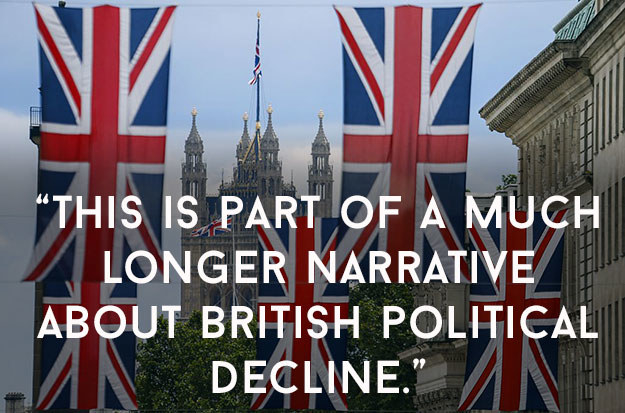
"From my perspective, this is part of a much longer narrative about British political decline – empires rise, empires fall, the British empire has been declining for some time. It’s part of a well established pattern. Even if the calls to undo Brexit work, and I don't think they will, it won’t change things much in the long term. In the short term it'll be economic pain, in the long term things will even out and carry on in roughly the same direction.
"Every generation thinks that their generation is the most disaffected, that the worst things are happening, that the politicians aren’t listening. If you go back to the 1970s and look at the strike actions under [Edward] Heath, there were very similar feelings of 'everything’s falling to shit and the elites aren’t listening'.
"There's an old saying: History doesn’t repeat itself but it rhymes. A lot of stuff seems new but it’s stuff that’s been happening for decades; the solutions we’re grasping for will probably come from the same attempts to get back to consensus politics as has happened in the past, and that’s not easy or glamorous and there’s no straight line towards that. I don’t think any one party can do anything major to fix it.
"I think it’s a pity, because it sounds now as though a lot of people voted Leave as a protest vote. In periods of political upheaval, people don't feel like they have power until they exercise it. The people voting Leave felt their power in exercising their right to vote, and then saw the effects of their power, and it's going to hit them the hardest."
Chris Hanretty, reader in politics at the University of East Anglia:
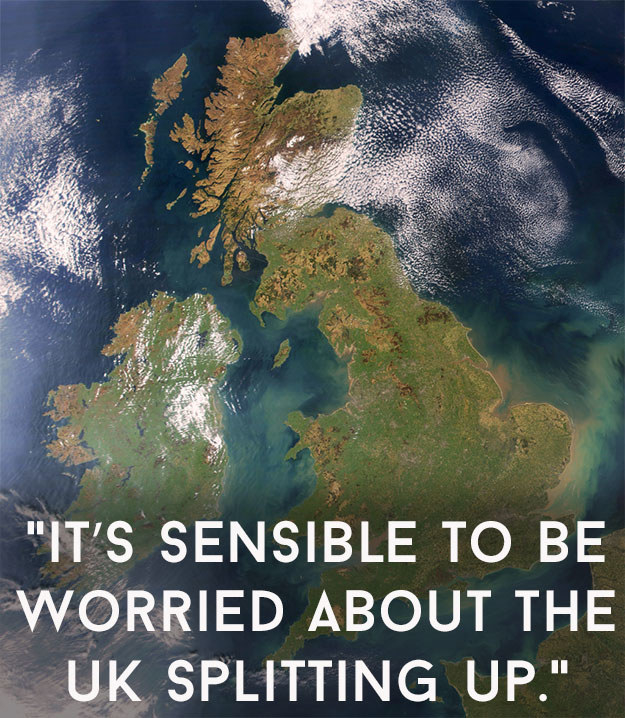
"It’s not the most likely outcome, but I think it’s sensible to be worried about the UK splitting up. I wouldn’t bet on party splits either, but I would expect to see movement between parties in the next six to nine months.
"The Leave and the Remain coalitions seem more coherent than the electoral coalitions of the different parties, and that's going to create a problem for the parties. But the base rate for party splits is really low in countries with first-past-the-post systems and long-established political parties – at the 2015 general election, the party best placed to exploit the major party's splits was UKIP, and they got one MP. In an eastern European democracy, where the parties might only have existed for 20 or 30 years, that might be different.
"People will continue to call for proportional representation, but to get constitutional change, you need a majority in parliament – and whoever’s got a majority in parliament has just won it under the current system, so it’s not that likely."
Catherine De Vries, a professor of European politics at the University of Oxford:
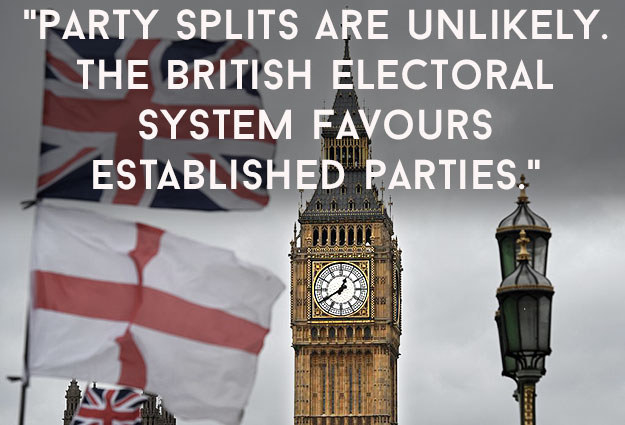
"I don’t think, given the way polling has gone recently, that political scientists can say that prediction is our strong suit! But party splits are quite unlikely. In Britain it’s hard for new parties like UKIP or the Greens to develop because it’s an electoral system that favours established parties.
"What you could see is divisions within parties becoming more pronounced – on the Conservative side, how much immigration and loss of sovereignty are we willing to accept; and on the Labour side, how comfortable are we with immigration, how comfortable with the EU and free market, and do they try to get voters back from UKIP in deprived areas.
"I think there will be either another referendum, on the procedure on how to leave the EU – or, more likely, a general election, given that there will be two new party leaders. Then some parties may run on a manifesto of staying in the EU, and if they win, they won’t trigger Article 50. If there’s a new Labour leader, disgruntled with how Corbyn ran the Remain campaign, they could go for that possibility."
Will Jennings, a professor of political science at the University of Southampton:
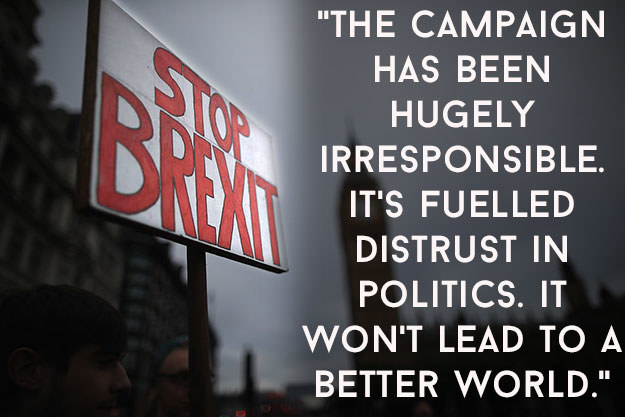
"Political disaffection has been at a historical high, and that was one of the factors driving the support for Brexit. It’s increasingly becoming apparent that the tradeoff for coming out of the EU will involve compromise, and people who voted for it will say they didn’t vote for that compromise, so there’s a real danger of rising distrust. I think there’s been huge irresponsibility, because the campaign was run in a way which fuelled distrust of politics. It won’t lead to a better world; it fuels disaffection in politics.
"The party system and the FPTP model is unable to contain the preferences of the electorate, so what we’ve seen is this polarisation of attitudes across a wide range of areas – it’s not just about Europe, it's about social change and inequality. So you’ve seen this division of attitudes to social change between more cosmopolitan areas and the shrinking areas, the end-of-the-line towns which have been struggling.
"It’s easy to focus on Labour’s problems, but the Conservative coalition is under strain too. I can’t see parties splitting, but we may well end up in a position of stasis with no party able to win a majority. If there’s an economic downturn, the Conservatives could lose popularity, but I can’t see Labour gaining it."
Jane Green, a professor of political science at the University of Manchester:
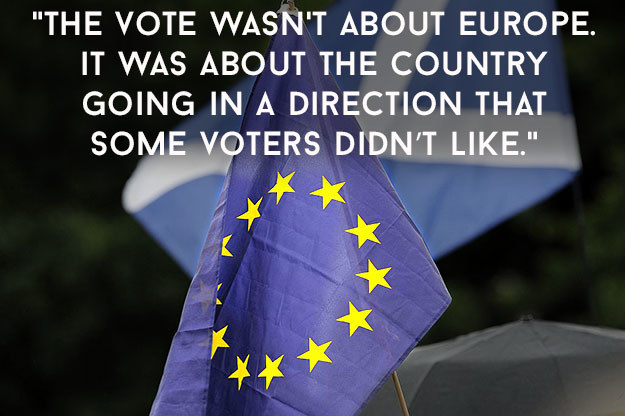
"It’s very hard to see, with any perspective, the unravelling that’s going on at the moment. It will only be with a long view that we’ll be able to understand the huge impact of this earthquake in British politics. It would be startling if this doesn’t cause a fundamental shift in allegiances with the political parties.
"If Scotland has a referendum and votes to leave the UK, we get into territory I can’t even begin to imagine, and the political parties that are ready to respond to this. The Lib Dems are down, if not out. We have a Labour party that has yet to regain anything close to readiness to being an alternative government. UKIP is in disarray, and it’s a mystery how the Conservatives will respond.
"We have shifting sands, with most of the opposition parties not ready to rise to the challenge. There has been a segment of the British population who have felt unrepresented for a very long time. It wasn't about Europe, it was about the country going in a direction that they didn’t like, about fears around immigration and disenfranchisement and terrorism and economic insecurity."
Neil Gavin, a senior lecturer in politics at the University of Liverpool:
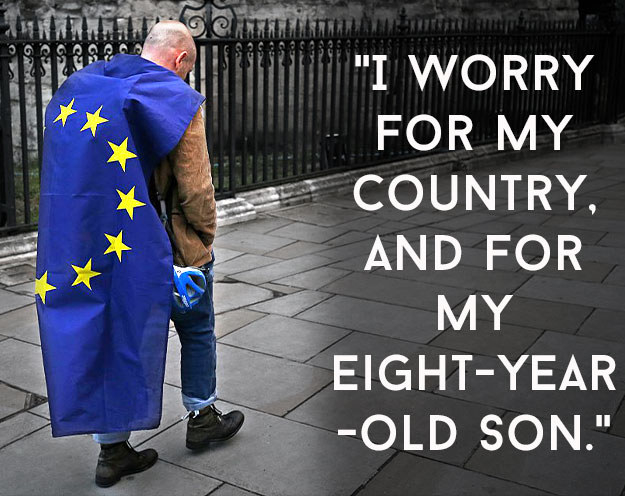
"In the current febrile climate it is dangerous to be too firm about what we think the long-term, or even medium-term, impacts might be. But as a media specialist I am worried about what will happen next to public debate.
"The Leave press took a position that looks shakier and shakier by the very minute, suggesting that there would be few economic, social or political implications to Brexit. When readers begin to realise that they have been sold a pup – or, more accurately, several litters of deformed pups – by the Leave press, one can only wonder how their owners/editors will react. Who will they blame next? Not themselves, that’s for certain.
"Maybe, in what’s shaping up to look like a full-blown economic crisis, the Labour party’s lack of cohesion will be 'to blame’ for the FTSE tanking, the pound falling off a cliff and the economy stalling. Maybe it will be those unreliable Europeans, with their effrontery in demanding some kind of clarity over article 50. And the Leave press have been all too keen to stoke up anti-immigrant hostility, with utterly predicable results. Who knows where they will take public debate in the future? I genuinely worry for my country, and for my eight-year-old son."
